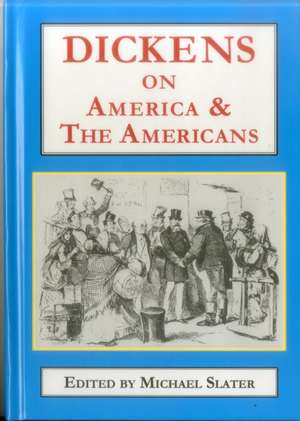Dickens on America & the Americans
en Hardback – 30 sep 2017
This celebrated and fully illustrated work brings Dickens into close focus as a key commentator on America.He turns his satiric pen on 19th-century American society during his visits in 1842 and 1867-68. This became what G.K. Chesterton called "Dickens's great quarrel with America." It became one of the most celebrated episodes in the history of Anglo-American cultural relations. This large format, fully illustrated book traces the history of Dickens's fascination with the young republic from his first glorious anticipations, through a period of bitter disillusionment, to a final reassessment and tribute to the nation. Michael Slater, doyen of Dickens scholars and his major modern biographer, argues that Dickens was a natural American, and that he experienced the same love/hate relationship with his own country. Dickens expressed many private opinions in his letters, and public views in his books, notably American Notes (1842) and Martin Chuzzlewit (1843-44). He comments on slavery, factories, social life, manners, and the Shakers. He caricatured the boastful, grasping, swindling Americans, taking his gleeful revenge. But he relented and his triumphal reading tour of 1867-68 posed a revealing contrast to his earlier attacks.
| Toate formatele și edițiile | Preț | Express |
|---|---|---|
| Paperback (1) | 375.42 lei 6-8 săpt. | |
| Edward Everett Root – 29 sep 2017 | 375.42 lei 6-8 săpt. | |
| Hardback (1) | 466.15 lei 6-8 săpt. | |
| Edward Everett Root – 30 sep 2017 | 466.15 lei 6-8 săpt. |
Preț: 466.15 lei
Nou
89.20€ • 93.13$ • 73.82£
Carte tipărită la comandă
Livrare economică 04-18 aprilie
Specificații
ISBN-10: 1911454854
Pagini: 272
Dimensiuni: 178 x 254 x 19 mm
Greutate: 0.69 kg
Editura: Edward Everett Root
Notă biografică
Descriere
This celebrated and fully illustrated work brings Dickens into close focus as a key commentator on America. He turns his satiric pen on 19th-century American society during his visits in 1842 and 1867-68. This became what G.K. Chesterton called "Dickens's great quarrel with America."
